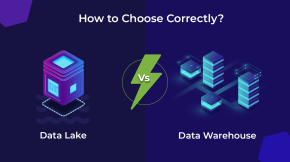A Journey for Streamlining Insurance Claims Intelligently with Generative AI Powered Solutions
Introduction
The aim of both precision and effectiveness in claims processing has proven to be a difficult road in the insurance industry. Every claim request has traditionally needed laborious manual processing, from assessment and assessment to verification and inspection. This resulted in considerable delays, increased expenses, and occasional errors that could potentially affect policyholders and insurers.
As the insurance market evolves amidst intense competition, technologies like generative Artificial Intelligence are revolutionizing business operations. Insurance companies can now automate multiple phases of the claims process using AI and machine learning. This streamlines processes enhances accuracy, reduces operating expenses, and minimizes the risk of errors and privacy breaches.”
As a leading Artificial Intelligence Development Services Company, we assist insurance companies to explore how AI-powered solutions are reshaping insurance claims processing and bringing a new era of efficiency and intelligence. From automating repetitive tasks to integrating diverse data sources into a unified framework, these advancements represent a pivotal shift towards a more streamlined and responsive insurance industry.
Challenges faced by Insurance Company During Claim Process
Addressing challenges in the insurance industry during the claims process with generative AI Solutions
Comprehensive document management
Insurance agents handle numerous documents, including bills, invoices, cash receipts, policies, contract documents, and more. Managing these processes can be challenging, impacting workflow and increasing expenses. However, advanced technologies, particularly generative AI, have revolutionized document management. With intelligent alerts for document retrieval and automatic summarization of information, generative AI enhances productivity, improves customer satisfaction, and saves time.
Damage assessment and evaluation
Insurance companies review factors such as damage reports, claim inspections, premium values, and cumulative experience tenure to assess damage for insurance claims. Using generative AI development services, they can combine generative AI models with computer vision, image recognition features, and predictive analytics in their solutions. They can assess the actual damage using accident images, pinpoint repair costs accurately, and determine the extent of damage in real-time with this solution. Such advancements help in speeding up risk evaluation and decision-making processes significantly.
Communication with policyholders
Insurance companies are responsible for managing many policyholders, which necessitates substantial human resources to handle questions about policies, coverage, claims, and personalized recommendations. To enhance communication with policyholders, many insurers are incorporating Generative AI into their systems. This technology empowers insurance companies to efficiently manage customer inquiries, send timely premium payment reminders, offer policy updates, and deliver pertinent content through AI-driven chatbots and automated response systems via natural language processing (NLP). This approach guarantees a seamless and responsive experience for policyholders by automating responses, which effectively reduces operational costs and frees up human resources.
Fraud detection
Digital advancements in Banking, Finance, and Insurance have brought about a rise in sophisticated cyber threats such as phishing, identity theft, credit card fraud, and document forgery, particularly impacting the insurance claim process for both individuals and businesses. These threats disrupt insurance procedures, resulting in issues like fraudulent workers’ compensation claims, falsified accident reports, and false claims.
How does GenAI Powered solutions help in Insurance Claim Process?
- Missing Document Locator
- Claims Summarizer
- Generative Q&A
- Analyze claim documentation
- Law Finder: Integrates relevant laws into the claim summary, ensuring all decisions are compliant with current regulations.
- Assessment Generator: Analyses claim data and suggests appropriate resolutions, reducing the need for extensive manual reviews.
- Response Generator
- Summarize lengthy documents
- Surface information for case managers, such as patient complaints and related ICD codes
- Anti-Fraud and duplication.
- Data-Driven Business Insights (identify trends, optimize processes, patterns and preferences)
- Voice Chat bot
Benefits to Integrate Generative AI in the Insurance Claim Process
Insurance Claims management
Generative AI-driven solutions assist insurance companies by automating processes such as document verification, summarization, information extraction, accurate valuation, and payment. This minimizes manual intervention and human error, resulting in faster claim settlements, improved operational efficiency, and an enhanced overall customer experience.
Operational Efficiency and Cost Reduction
Integrating Generative AI technologies such as machine learning algorithms and OCR into the insurance sector enhances the efficiency and accuracy of claims processing. . These advancements streamline operations, lower costs, and ensure faster, unbiased claim settlements, ultimately enhancing customer satisfaction and operational effectiveness in the insurance industry.
Innovative Product Development
In developing products for the insurance industry, leveraging Generative AI and large language models offers transformative capabilities across critical functions. These technologies analyze customer behavior using NLP for tasks such as text analysis of policy documents, handling customer queries, and ensuring regulatory compliance. They also conduct sentiment analysis to derive insights from feedback and monitor market trends. Furthermore, these tools excel in fraud detection through anomaly detection in transactional data, and they optimize marketing strategies using predictive modeling and computer vision. Machine learning enables the analysis of transaction data, while deep learning aids in pattern recognition. By harnessing existing data, insurers can develop custom insurance policies and maintain a competitive edge in a dynamic market environment.
How Beyondkey Systems Pvt Ltd Leverage GenAI To Streamline Insurance Claim Process?
As a leading Artificial Intelligence and Generative AI Development Company, we offer free consultations with our experienced AI developers to decision-makers in the insurance industry. We assist them in adopting digital transformation in their insurance claim processes through Generative AI-driven solutions and applications. These innovations enhance the accuracy of assessments, deliver personalized customer experiences, conduct risk assessments, and detect fraud from damage reports, police reports, and witness statements.
By integrating tailored LLM-based applications into insurance operations, companies can revolutionize their claims-handling processes and client interactions. Through GenAI-powered chatbots and virtual assistants leveraging advanced models like GPT-4, Vicuna, Llama 2, or GPT-NeoX, insurers can offer seamless customer support, handle language translations effortlessly, and deploy robust Q&A systems. These applications streamline claims processing and underwriting by automating document analysis, risk assessment, and decision-making based on analyzed data from diverse sources including text, images, voices, and music. This integration not only enhances operational efficiency but also enables quicker, more accurate responses to client queries while reducing costs and improving overall service quality.
AI-powered OCR solutions are pivotal in transforming the insurance industry’s claims processing workflows. These solutions excel in converting handwritten and printed documents into digital formats, thereby enhancing accessibility and efficiency. By leveraging advanced OCR technology and natural language processing (NLP), insurers can automate the extraction of critical details from diverse document types. This capability not only reduces manual effort but also minimizes errors, speeds up processing times, and improves overall accuracy in assessing claims. Such innovations empower insurance companies to deliver faster, more reliable services to policyholders while optimizing operational workflows.
Still thinking?
In what ways will GenAI drive a transformative change in financial institutions while addressing challenges in the insurance claim process?
Talk to our AI consultant and explore how we enable financial institutions to develop custom GenAI-powered solutions and integrate domain-specific generative AI models into your existing tech infrastructure, empowering your organization to thrive in the rapidly evolving tech landscape.












